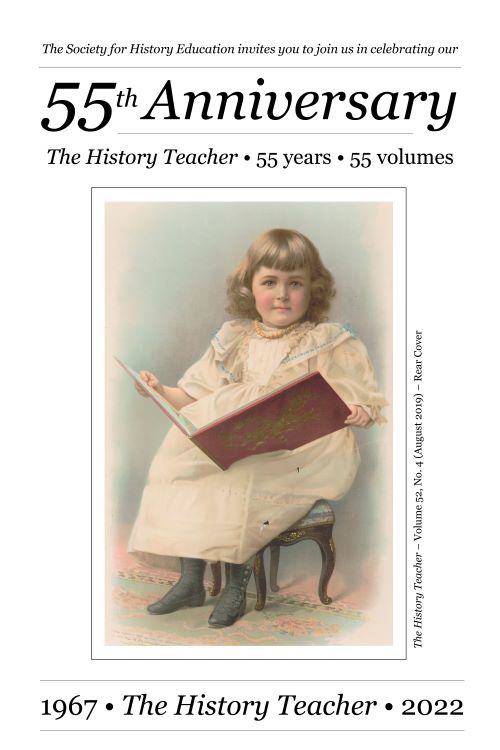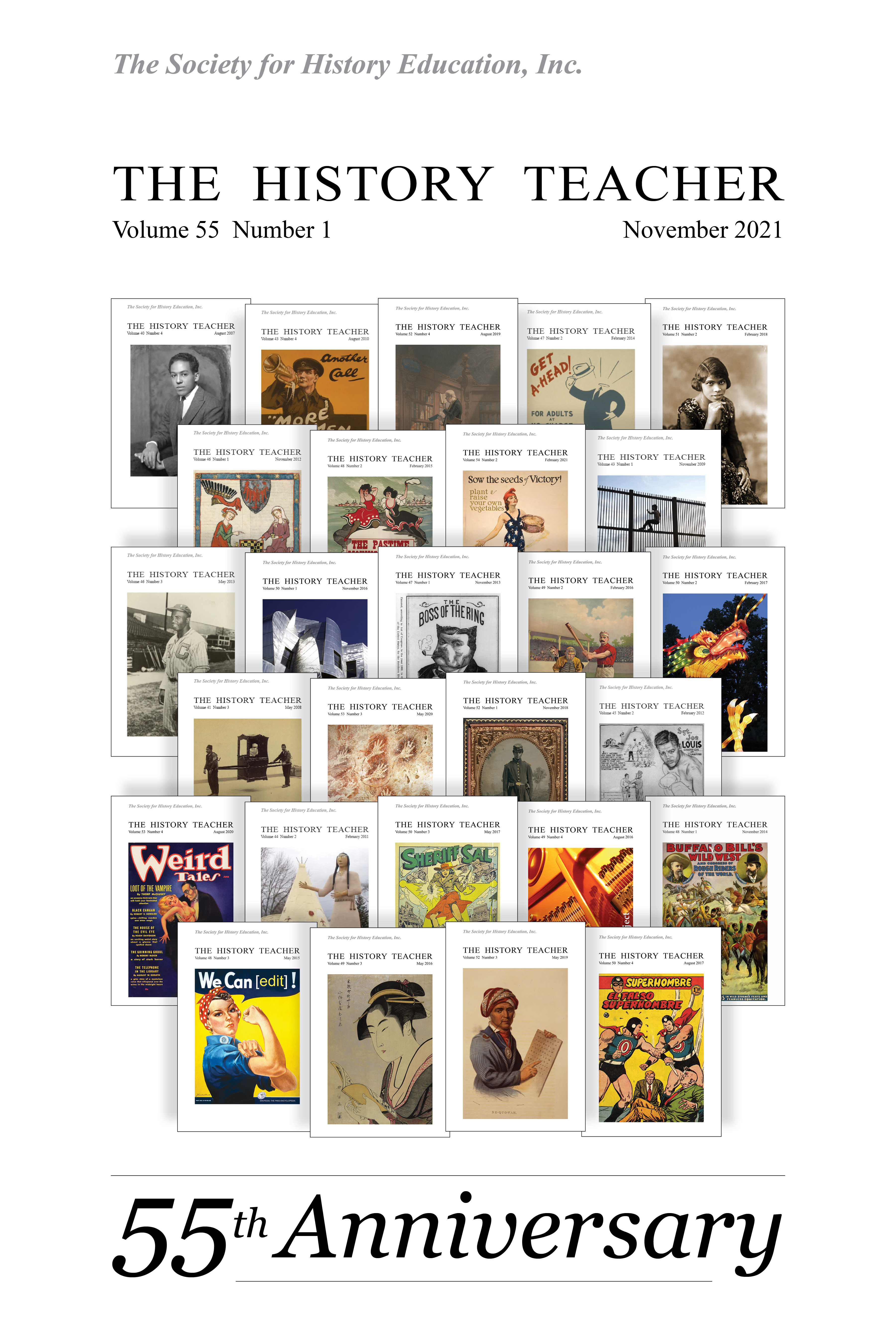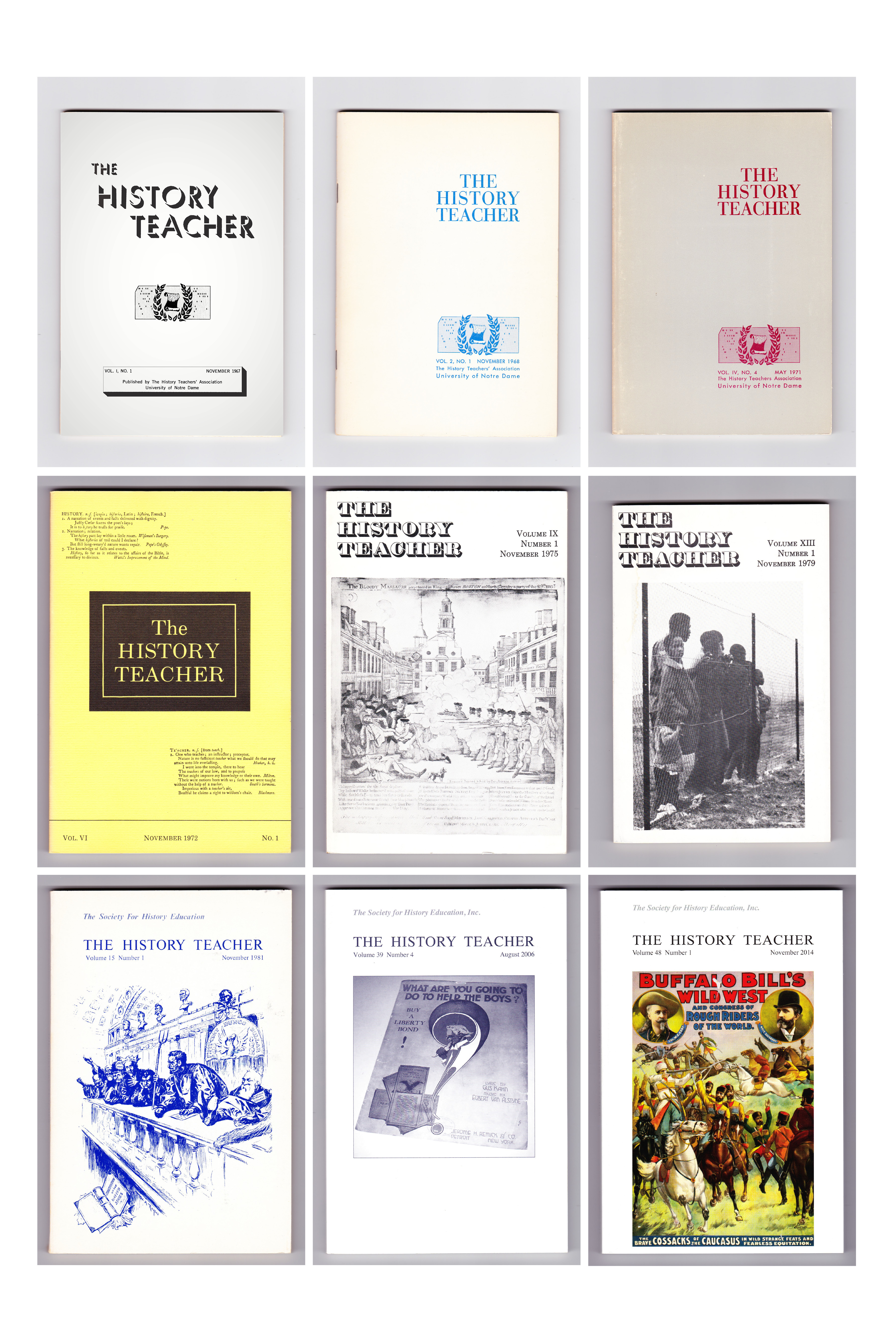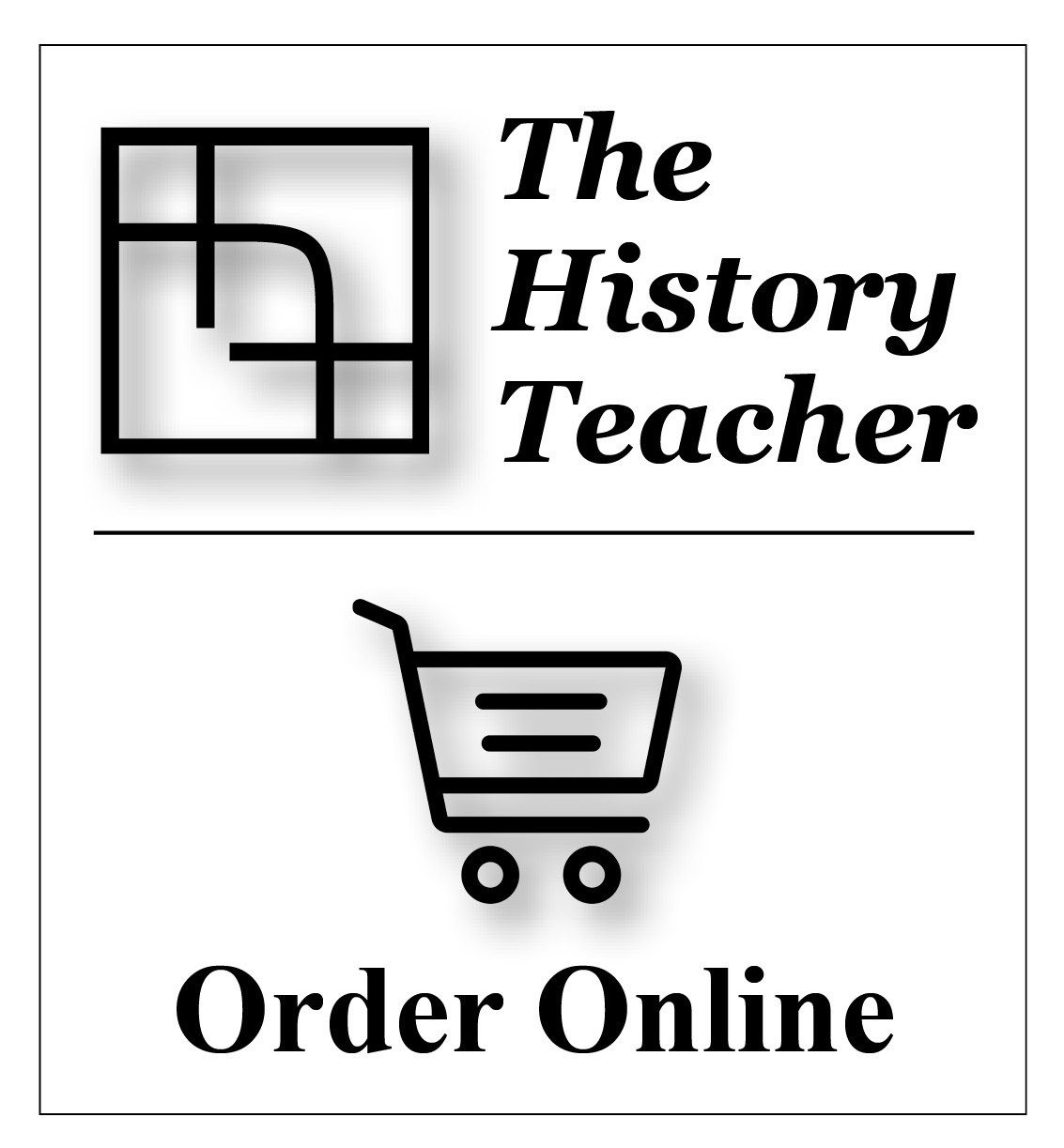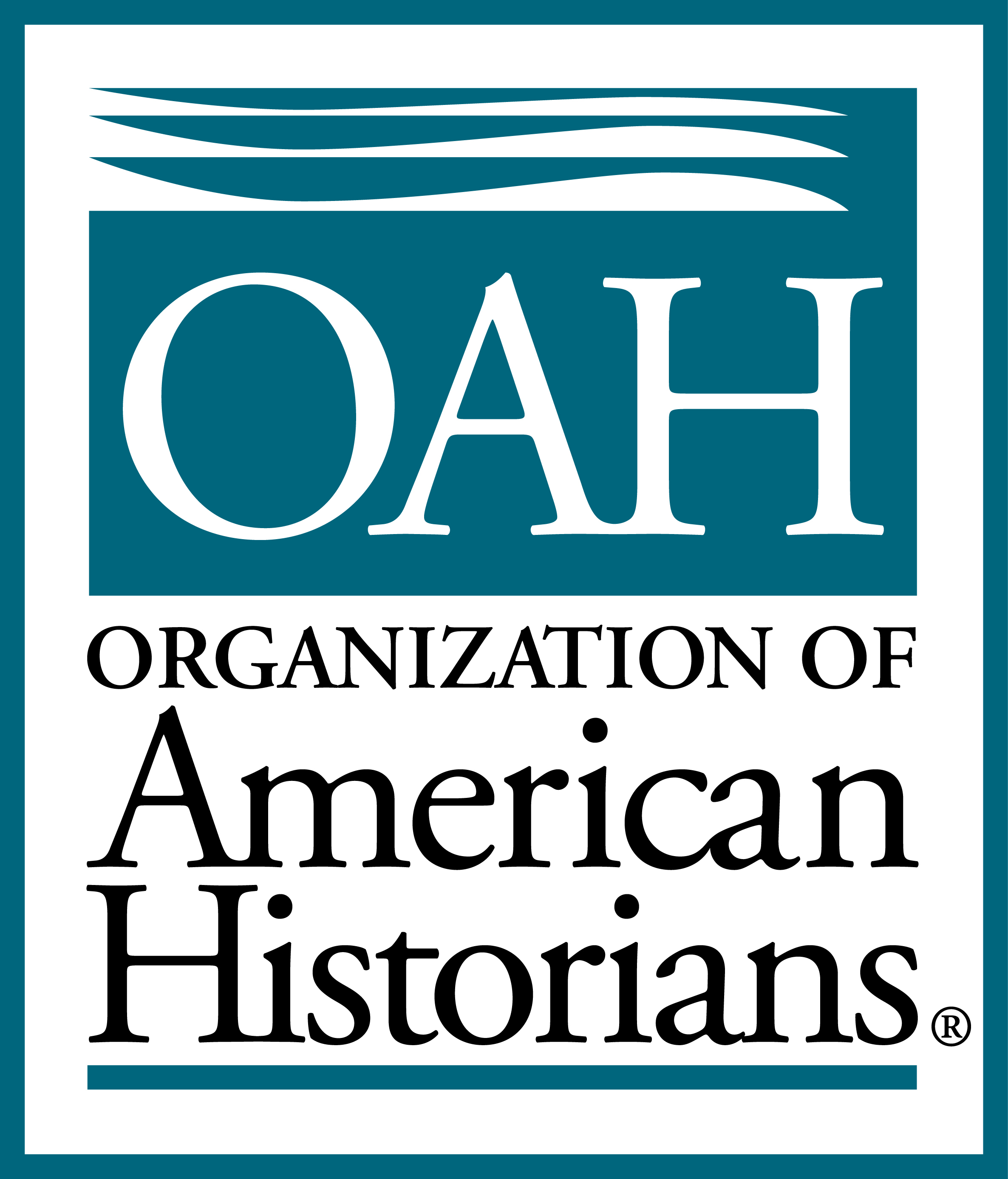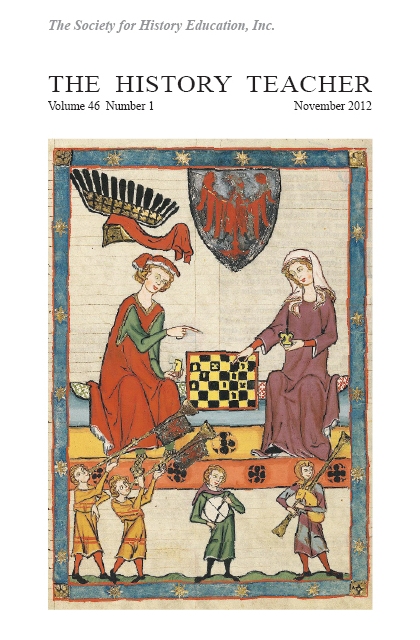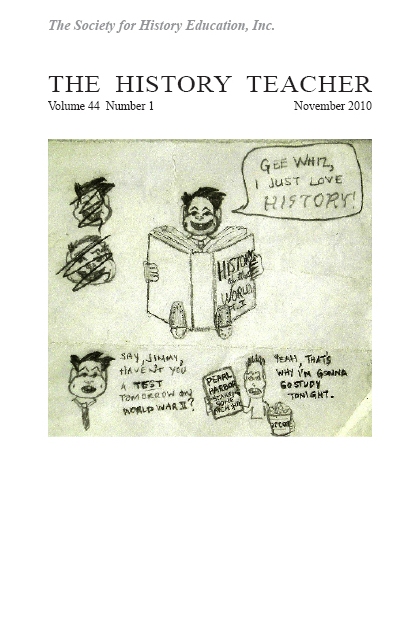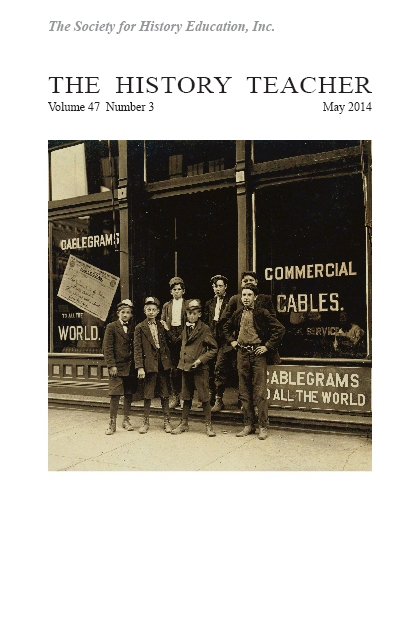The History Teacher
Volume 55, No. 1
November 2021
Front Matter | Back Matter
THE CRAFT OF TEACHING
Digital History
Spatializing Race, Understanding History: A Professional Development Experience Centered on African American History and Culture
by Jennifer Sdunzik, Chrystal S. Johnson, and Ningning N. Kong
(pp. 11-33)
Spatial Approaches to the Past: Story Maps in the History Classroom
by Christopher Saladin and Shana Crosson
(pp. 35-59)
Teaching Thanksgiving
First Graders' Historical Inquiry into Thanksgiving, The World's Most Famous Potluck
by John H. Bickford
(pp. 61-118)
SPECIAL FEATURE
NATIONAL HISTORY DAY 2021 PRIZE ESSAYS
Introduction
by Jane Dabel, The History Teacher
(pp. 119-120)
Kindling the Flame of Revolution: Communication and Committees of Correspondence in Colonial America
by Michelle Miao, Senior Division
(pp. 121-136)
Lithuanian Awakening: How a Book Ban Rebirthed a National Identity
by Elise Williams, Junior Division
(pp. 137-152)
REVIEWS
Full Reviews Section
(pp. 153-174)
Buelna, Enrique M. Chicano Communists and the Struggle for Social Justice
by Lorena V. Márquez
Clavin, Matthew J. The Battle of Negro Fort: The Rise and Fall of a Fugitive Slave Community
by Jeffrey R. Kerr-Ritchie
Collins, Marcus and Peter N. Stearns. Why Study History?
by Paul Nienkamp
Flores, Lisa A. Deportable and Disposable: Public Rhetoric and the Making of the "Illegal" Immigrant
by Ralph Armbruster Sandoval
Frank, Andrew K. and A. Glenn Crothers, eds. Borderland Narratives: Negotiation and Accommodation in North America's Contested Spaces, 1500-1850
by Franklin Sammons
Kang, Laura Hyun Yi. Traffic in Asian Women
by Margaret D. Stetz
Kristofic, Jim. Medicine Women: The Story of the First Native American Nursing School
by Juliet Larkin-Gilmore
Lee, Erika. The Making of Asian America: A History
by Noreen Naseem Rodríguez
Levy, David W. Breaking Down Barriers: George McLaurin and the Struggle to End Segregated Education
by Brian Daugherity
Martel, Heather. Deadly Virtue: Fort Caroline and the Early Protestant Roots of American Whiteness
by Gunner Joachim
Neuman, Johanna. Gilded Suffragists: The New York Socialites Who Fought for Women's Right to Vote
by Kelly L. Marino
Silverman, David J. This Land is Their Land: The Wampanoag Indians, Plymouth Colony, and the Troubled History of Thanksgiving
by Melissa Archibald
Ware, Susan. Why They Marched: Untold Stories of the Women Who Fought for the Right to Vote
by Sara Egge
IN EVERY ISSUE
7 Contributors to The History Teacher
174 The History of The History Teacher
177 Questionnaire for Potential Reviewers
178 Membership/Subscription Information
280 Submission Guidelines for The History Teacher
ADVERTISERS IN THIS ISSUE
9 Society for History Education: 55th Anniversary
10 Society for History Education: The Richard & Louise Wilde Award
34 Association for Asian Studies: Asia Shorts
60 Polity Books: History: Why It Matters
CONTRIBUTORS
John H. Bickford is a former Mid-Prairie (Iowa) Middle School Social Studies Teacher and a current Professor of Social Studies/History Education in the Department of Teaching, Learning, and Foundations at Eastern Illinois University. His undergraduate degree in History, graduate degree in Education, and doctoral degree in Secondary Social Studies Education are all from the University of Iowa. He teaches and researches about the sources and strategies that facilitate students' historical inquiry.
Shana Crosson joined the University of Minnesota (UMN) as an academic technologist helping faculty integrate digital projects into courses after many years in history museums as a digital content and curriculum developer. Seeing GIS as a technology that has significant impact on how we study, interpret, and communicate about history, Crosson continues to work with the Story Maps Curriculum team full-time as a Spatial Technology Consultant at the UMN using GIS in higher education and in K-12 schools.
Chrystal S. Johnson is an Associate Professor Social Studies Education and Past President of African American Educators for Social Studies and the Indiana Council for the Social Studies. Her scholarly contributions in the fields of character education, citizenship development, and the social studies have been published in top tier journals. She currently teaches social studies methods in the elementary and secondary programs.
Ningning N. Kong is an Associate Professor in Geographic Information Systems (GIS) at Purdue University Libraries and School of Information Studies. Her research emphasizes applying geospatial information in multi-disciplinary education and studies. Her research interests include geospatial data discovery, integration, visualization, management, and spatial analysis.
Michelle Miao is a student at Talawanda High School in Oxford, Ohio. Her paper, "Kindling the Flame of Revolution: Communication and Committees of Correspondence in Colonial America," won first place in the 2021 National History Day contest Senior Paper division. President of Model United Nations and youth representative on her city council, Miao has also received an American Voices Award and Gold Medal from the Scholastic Writing Contest. She hopes to study government, economics, and international relations.
Christopher Saladin is a Ph.D. candidate in History at the University of Minnesota and a graduate of Augustana College (B.A.) in Rock Island, Illinois. An ancient Roman historian by training, Saladin has teaching experience in a wide range of premodern history courses. From Fall 2018 to Summer 2020, he worked for Minnesota's U-Spatial mapping center as part of the Story Maps Curriculum Team, which helps instructors implement digital mapping assignments across a wide range of disciplines.
Jennifer Sdunzik received her Ph.D. in American Studies from Purdue University. She uses a combination of archival, geospatial, and ethnographic methods in her research to understand the legacies of longstanding exclusionary attitudes and policies in the Midwest. She is the recipient of Purdue University's 2019 College of Liberal Arts Distinguished Dissertation Award. Sdunzik is currently a postdoctoral research associate in the Evaluation and Learning Research Center at Purdue University.
Elise Williams lives in New Jersey and is currently in high school. She won first place in the Junior Paper division at the 2021 National History Day contest for her essay, "Lithuanian Awakening: How a Book Ban Rebirthed a National Identity." She loves to read and admittedly likes to rewrite the endings of her favorite books. Her favorite genres are fantasy and historical fiction. In her free time, Williams enjoys writing, gardening, listening to music, and baking. Her favorite subjects are English and History. She also plays the flute and piano.
|
